Carrie Stephens's Blog
February 25, 2024
Walking Through The Dystopian World Called The Empty Nest
As a child, I recall watching one of the Mad Max movies with vibrant clarity. The finer points of the plot lay beyond the scope of my young mind, but I knew I didn’t like anything about the world I witnessed on that screen (except Tina Turner’s outfits- she was awesome). .
I gave desert dystopian worlds devoid of the comforts of home, friends, and family zero stars. I would be a Rom-Com kind of girl, through and through.
But as I grew up and encountered more dystopian movies and books, my appreciation for the genre grew bit by bit. Always a lover of how books empowered my imagination to control their worlds a little, I enjoyed books like The Giver, The Hunger Games, and The Handmaid’s Tale. However, when friends and family dragged me to dystopian movies like Planet of the Apes, Blade Runner, and The Matrix, I bought myself popcorn and Coke as a consolation, then closed my eyes when the stark, cruel worlds overwhelmed me.
Once I became a mother, I didn’t realize I had created my own private dystopian world. But this has proven to be a truth I cannot imagine away.
Our family is in flux these days, with teenagers becoming adults. Our numbers are decreasing and will continue to decrease at a rapid pace. The emptying of a nest is an otherworldly experience for a parent. It is a dystopian reality that once existed only in theory but has been made real by some kind of magic we have no power to control with our imaginations.
On the upside, my husband and I now have time to walk. Have you ever noticed that a lot of dystopian movies and books involve walking through the new world to explore the terrain? This is very on-brand, and we are here for it, apparently.
Usually, the two of us embark on these walks alone. However, last week, we asked two of our kids to join us. They agreed, and when we got to the neighborhood swingset, these kids-turned-adults thought it would be fun to swing in the pitch black of night. Morgan and I sat on the park bench and watched as they used a phone flashlight to light the space where my son pushed my daughter higher and higher.
Sitting there felt like a return to how things once were, but it also felt like something altogether new. Allow me to scooch over on the bench and invite you to watch my amazing, wonderful, brilliant kids put on a delightfully nostalgic swinging show for their parents. I don’t have salty popcorn and fizzy soda for you, but I hope you can taste how meaningful this one big, beautiful life can be.
The empty nest is not a dystopian desert, after all. It is one chapter in the greatest story ever told about love and hope and living your dreams together with the people you love.
I give The Empty Nest five stars. Totally recommend.
December 14, 2023
A Very Gen X Advent Tale
When Elizabeth heard Mary’s greeting, the baby leaped in her womb, and Elizabeth was filled with the Holy Spirit. – Luke 1:41
I am a child of the 1980s.
I only mention my Gen X-ness because Elizabeth’s reaction to John the Baptist’s in-utero dance moves brings to mind the first line of Whitney Houston’s power ballad, Greatest Love of All.
My friends and I loved belting out that song in middle school with our radio on blast and car windows rolled down. Whitney convinced us that the children were the future, capable of leading us to a love that could change the world.
I am a child of the 1980s, and when I read that the Holy Spirit filled Elizabeth as her baby leaped within her, both mother and child thrilling to be in the presence of the Son of God growing inside Mary, I am persuaded that Elizabeth would have agreed with Whitney. After all, the babies featured in Luke 1 went on to change the world forever with their great love.
At its core, the Luke 1 narrative is a story of belief in God’s love for each one of us. It’s a story about how unexpected babies can be part of God’s most glorious plans. And it’s also about how people like Mary and Elizabeth, who have entrusted themselves to God, can experience the fullness of the Holy Spirit together.
I am a child of the 1980s, but I didn’t know much about God when I sang along with Whitney back then. It took me a long time to understand and believe that a child born in Bethlehem came to fulfill every longing of my heart for a love that could never be taken away.
The story of Christmas and Christianity is pretty simple, really: The greatest love of all has come into the world to fill us and light our future.
Father God, I pray you would lead us deeper into your love as Christmas songs play and children leap around the tree. May the comfort and joy of Christmas fill us as we choose to believe you’ve promised us a future full of your best plans. And may Whitney’s lyrics be true: let us live as we believe, that your love can change everything, no matter our age. Amen
Note: This devotional is part of 12 Days of Hope, a series of Advent devotionals created by Mosaic Church Austin. You can read more here.
April 25, 2023
Poetry, God, & Artificial Intelligence
Lately, I write poems in the kitchen, waiting for sauces to thicken. I tap out poems on trails by the river while my daughter dances and sings in her rehearsals. I sit up in bed, head full of words that make no sense as prose, but sing into lines of poetry.
I have not always been like this, but something about computers, smartphones, and predictive texts has awoken words that once lay dormant.
I loved poetry in the 1980s when Mrs. Heller read Where the Sidewalk Ends to my third-grade class. The room smelled of white glue and playground dirt; the children wore sweaty brows from playing handball. Gathered in that room together, we emitted a slightly musty odor. I recall cackling there on the reading rug; my legs crossed, hands resting in my lap as we found ourselves in poems about trading quarters for dimes, selling annoying siblings, and the voice in our heads that knew right from wrong.
The words in the poems seemed important (after all, our teacher read them to us!), and because they were about us, they proved we, too, were important.
Sometime in high school, poetry lost my attention. Maybe the boys and the friend drama drowned out the poems, but our English teacher did poetry no favors with what she assigned. The poems we read as teenagers were like an old crush who has lost interest in your thoughts and forgotten to care about what happens to you. In this literature-laden 21st century, YA poetry has flooded the world with books in verse and poems about the things teens love, but we Gen Xers were expected to fall in love with the Illiad, Shakespeare, and haikus about golden leaves. Most of us did not find ourselves in those poems, so we moved on to other interests.
In lieu of poetry, I read all the novels the Brontes, Fitzgerald, and Austen ever wrote and fell in love with the wonder of imaginary worlds. I later picked up Harry Potter, The Hunger Games, and Eragon. I would later read broadly and diversely, opening All the Lights We Cannot See, What Alice Forgot, and The Underground Railroad. In these stories of loss, love, ghosts, and adventure, I found worlds that did what poetry had done when I was young: reassure me that the story of me is a story worth living.
Since I didn’t miss poetry, I assumed I did not need it.
Sometime in my mid-20s, a friend gifted me a small book of poems by Christina Rossetti, and I began a casual relationship with poetry again. A few years later, I purchased a volume of poems by Emily Bronte and found them to be a mixture of excellent and tedious. I learned one day that my great-grandmother wrote poems about kites, mountains, and the Bible stories she loved. My soul sparked when I read Where the Sidewalk Ends to my children, sitting crisscrossed on the floor. By my mid-forties, poetry had come to retake its rightful place. Throughout those years, I discovered random poems in strange places: movies, television biographies, Instagram posts, and mystery novels. I gathered them up and clung to them like life preservers, though I did not know why.
Lately, much has been said about artificial intelligence and what it can create in the world. We copywriters, photographers, and nonfiction authors tremble to think of how replaceable our talents might become as computers learn to do our jobs. As my fear grows about how the publishing world might change in the wake of this newly formed reality we face, I have begun to believe that poetry can save us.
My life preservers were stacked and ready for such a time as this.
Perhaps, in some future my children or grandchildren exist in without me, computers will be capable of communicating the intangible fuel of poetry: wonder, awe, spite, humor, grief, and love. But for now, in the reality we have been fortunate to possess as our own, there are islands of creation kept safe from bots for those brave enough to row to them.
Mary Oliver once wrote this in her poem Fraz Marc’s Blue Horses, “Maybe the desire to make something beautiful is the piece of God inside each of us.”
What does AI know of desire? Only what the poets have tried to teach it. But desire is not a fact to be known or an expression easily replicated. Desire is a human thrill of longing that can only be hinted at by the voice of one who has either wrestled it into submission or succumbed to its power.
The power of human desire makes me wonder if we will find a kind of poetry when we reach inside ourselves for the piece of God within us. Is this the work these computers do in our world, forcing us to find God where we thought we had already looked?
We, too, are important. We, too, bear God’s image. Poetry has come to carry us to places technology can’t.
I am grateful for the ride.
December 24, 2022
Merry Christmas
The shepherds returned, glorifying and praising God for all the things they had seen and heard, which were just as they had been told. Luke 2:20
Is “happily ever after” real?
If you’ve ever wrestled with questions like, “Will this next treatment finally heal me?” or “Will love ever really work out for me?” or “Can I forgive the person who hurt me?” you’ve navigated the tricky space of wishing for the world to be as we long for it to be: a place where our stories end the way they should.
Incredibly, the Christmas story dares us to hope that a forever happily ever after ending is exactly what God plans to give us. In the chapters between his birth and death, Jesus’s life shone as bright as the Sun for a few years as he miraculously fed and healed multitudes of people. But then everything went dark. Jesus was unjustly arrested, and all his friends and family despaired as they watched the government torture and execute him.
That wasn’t how they thought things were supposed to go. I hope you find their story consoling today if your world is upside down in some way. You aren’t the only person in need of hope.
The thing about “happily ever after” is that it takes time. For the shepherds that night, they had only the hope that the baby in the manger would grow up to save and deliver them. I wonder if they lived long enough to see Jesus become a teacher and healer. If they did, did they still hold the hope those angels promised them after Jesus was crucified? Could I hold onto hope through something that disillusioning? Could you?
The story of Jesus’s birth, life, death, and resurrection teaches us that if we have not arrived at “happily ever after” yet, then we aren’t at the end of the story. It is a promise from the God who created all things (even us!) that happily ever after is actually more real than the painful darkness we must pass through in the middle of the story.
I hope you can rejoice and glorify God today because as the hymn, Oh Holy Night, promises, a new and glorious morning awaits us because Jesus was born.
God, I thank you for the unique hope of Christmas; that someday my story will end as it should. Help me hold onto hope until happily ever after becomes my reality. In Jesus’s name, Amen.
December 6, 2022
On Christmas Traditions
I saw a photo from Christmas 2006 last week, in which my three oldest children all fit on one little ride-on toy car. Given that those boys are all over six feet tall now, I think Bob Dylan was right. The times they are a-changin’.
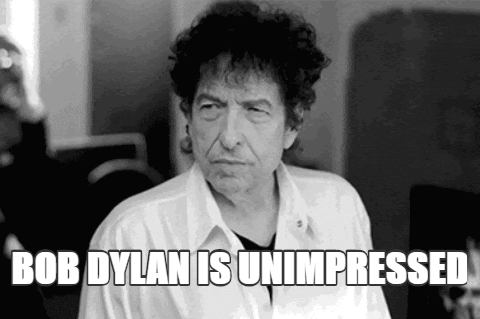
I suppose that wasn’t the specific change Dylan was singing about. But Christmas offers an odd time of reflection to imagine life as it used to be, as it is now, and as it might be someday.
Just ask Old Ebenezer Scrooge. Facing Christmas past, present, and future can create a revolution in your soul.
Every Christmas, the desire to experience Christmas with childlike wonder returns to me. Having littles singing Jingle Bells helps create that wonder a little more easily. College-aged kids who need cleaning supplies and Uber gift cards make me want to throw a party for the ghost of Christmas past.
A few years ago, when I first saw this shift to adult children in our Christmas future, I tried to prepare myself. I attempted to institute some new family traditions to make space for the eventual changes.
Those new traditions didn’t last. We all forgot about the Christmas book exchange of 2018, for example. We have clung to traditions we’ve had for years now: Cocoa and Christmas lights, baking cinnamon rolls for the homeless, extravagant charcuterie after church, and Christmas jammies on Christmas Eve.
When our kids were little, Christmas traditions felt like sweet ways to celebrate with each other and help them learn that Christmas was special. Now with our teens and adult kids, our family traditions feel more like ways for us to remember we’re loved here, that our family is an important part of who we are, and that loving others is the greatest call on our lives.
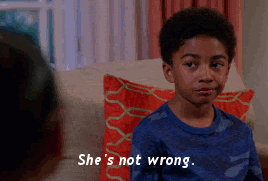 There is comfort and joy in imagining us all, twenty years from now, opening pajamas on Christmas Eve while noshing on cheese and crackers, even if we aren’t opening them together.
There is comfort and joy in imagining us all, twenty years from now, opening pajamas on Christmas Eve while noshing on cheese and crackers, even if we aren’t opening them together.
Maybe Bob Dylan was wrong, and things aren’t changing all that much. Maybe God’s love has always been the life raft carrying us through the toddlers and the teenagers and the pans of cinnamon rolls and whatever else we face in this life at Christmas and every other time of year.
Today I wish you traditions of love and Christmas and family and friends and hope and cookies and presents and joy and scriptures and candles and faith in the God who made all things.
Merry Christmas, you guys.
November 22, 2022
On Showing Up Grateful
On one of the last days before Thanksgiving break, a teenage child left my house happy because the thought of a whole week off danced ahead, a well-deserved party full of pie and mashed potatoes. Another child shrugged, grouchy because the last day of school before a break is almost always pointless, and why couldn’t everyone just stay home??

Their perspectives hit incredibly close to home for me. I am always caught somewhere between these two extremes in life: thrilled about the joy around the next corner or full of dread that the final lap of my race requires more than I’d like to give.
Figuring out what story we’re in is a constant challenge; are we living a dream or are we enduring a tragedy?
To be honest, our perspectives often only last as long as the circumstances of our stories can support them. For example, if something horrible and tragic happens to my happy kid, like extra homework assigned during the break, his morning peppiness will end. And if my grouchy child found a fifty-dollar bill lying in the gutter on the way to school, leaving the house would literally pay off.
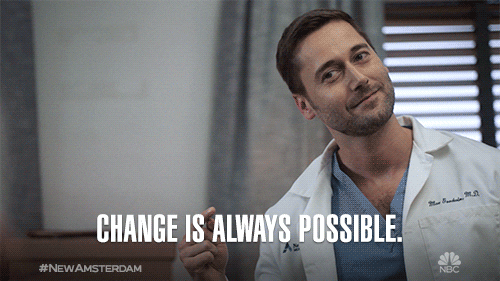
Isn’t it funny? The way we can be wholly surprised by what the day brings? Even on our grouchiest days, there can be good reason to hope for improvement. But we miss all the fun and surprises if we believe the lie that we shouldn’t bother showing up. Showing up is the first step of faith, and it requires we acknowledge that there is always cause for hope.
And so, “It’s the last day of school, why show up?” becomes “One more day, and then it will get better.”
“Someone else could do this better, what’s the point?” becomes “I’m going to practice being faithful and trust the process alone will grow my skill and character.”
“You failed last time, let’s hide in bed this go around,” becomes “Succeed or fail, I refuse to quit.”
Every time I wish I could run away and never have to show up, I remember how almost every good thing in my life is the direct result of showing up for something I wasn’t sure I could pull off. Even the times I showed up and fell flat on my face have served to help me be brave enough to show up again and learn that I’m not destined to fail every time.
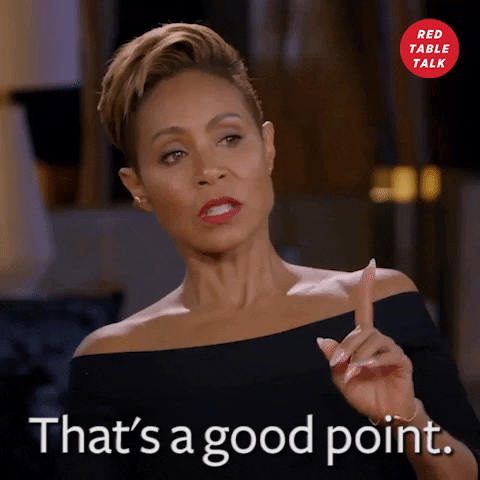
Wherever we are, God is. Whatever we face, he’s facing it with us. The real truth is God is facing every enemy and obstacle in our path for us. We’re pretty much just along for the ride.
Here’s to a week of prioritizing gratitude by showing up for our friends and family, for work, and even for ourselves. If things go awry, we always have pie, mashed potatoes, and the God of all comfort. May our hearts find satisfaction in him.
(PS I hope you find fifty dollars in the street this week. How fun would that be?)
September 16, 2022
On Pain and Unexpected Births
I knew a woman once who became very sick one day at work. She left to go home but instead headed to the emergency room because she felt so horrible. She walked into the hospital terrified she might be dying and walked out three days later with a full-term baby.
This story is one hundred percent true and also one hundred percent bonkers.
Last Sunday, as I stood and sang during worship, this story came back to me. When I first heard her news, I tried to recall if she had looked pregnant to me in the days leading up to her big surprise. She didn’t. No one had a clue. To be pregnant with life and unaware is a shocking circumstance.
But the story causes me to wonder how many of us are spiritually pregnant with new life. Could the painful circumstance in our lives, families, communities, and nation be contractions? Could the intolerable weariness we carry be caused by the energy within us being siphoned off by the hope God is forming within us? Will the fear we feel be quelled one day by some beautiful, unexpected answer to our heart’s deepest prayer?
In John 16, Jesus said that grief often turns to joy. He gave the example of a woman in the throes of childbirth, saying that once the baby arrives, she forgets the anguish because her joy is so great.
I have returned to that passage many times, as a woman who was pregnant in the natural and as a woman who longed to see God birth something spiritually in her life. Part of my brain rejects the idea that we forget the pain completely, simply because I gave birth four times and I have not forgotten how it felt like a giant, sharp metal monster was housed in my body, fighting to find an exit.
In my experience, the pain is not forgotten completely, but our anguish over the pain does dissolve into nothing in the end. While the contractions pound us, we resent them. Once those contractions push that baby out, our gratitude for the new life we hold expands to include a strange kind of gratitude for the birthing pain that brought the baby to us.
Today, if you’re going through a painful season of some kind, I pray you hear the voice of God, like a divine birth coach. I hope you’re able to breathe through the contractions. And I pray your heart is lit by the hope that our God turns grief into joy, transfers anguish into gratitude, and gives us beauty in exchange for ashes.
You are loved, and this too shall pass.
August 10, 2022
On Beginning Again
I’ve been writing the same novel for about five years. At the rate I’m going, it may take me five more to publish it. I have begun it, trashed it, and begun it again so many times. I’m becoming an expert at beginning a story again.
I used to worry my novel would be terrible and no one would read it. Now, I don’t care if the book is garbage. I just want to know how the story ends.
Sometimes, I feel the same way about my own life. My prayers often sound a lot like this: God, how will this plot you’ve thrown me into resolve itself?
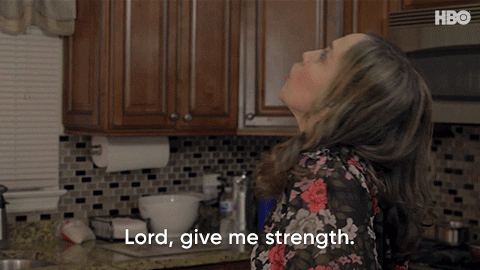
Usually, the resolution involves beginning again in some way; to find the next chapter, I must either remember how the story began or toss my rough draft attempt and try to find the plot in a new way.
Jesus pretty much told a whole crowd to begin again in Matthew 26, after he was betrayed:
“Have you come out with swords and clubs, as if I were a criminal, to capture me? Every day I used to sit, teaching in the temple, and you didn’t arrest me. But all this happened so that the writings of the prophets would be fulfilled.” Then all the disciples deserted him and ran away.” (Matt 26:55 CSB)
All this happened so that the writings of the prophets would be fulfilled. This was Jesus’s attempt to remind them that God had been writing the plot toward this moment of betrayal all along.
All the disciples deserted him. This was when they tossed their rough draft attempt to understand God’s plan.
The most challenging part about beginning again is we almost always must relinquish the right to tell God his plan isn’t the one we would have chosen.
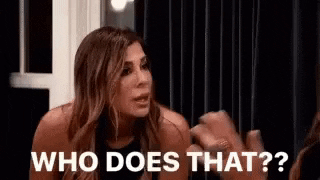
God’s plan probably seemed far too painful from the disciples’ perspective. After all, he put himself at the center of their lives, let them taste the great hope of freedom and liberation, caused them to fall head over heels in love with him, and then snatched himself away from them when they were hooked. This story begs the question:
How do we start over when God’s led us through unjust, painful circumstances?
After all the disciples ran away and deserted Jesus, the first to return to him were the women obligated by their culture and their love for him to tend his body.
Duty and love are a powerful combination.
Duty and love gave Mary Magdalene, Mary the mother of Jesus, and Salome the first glimpse of God’s redemptive story arc. Duty and love gave them ears to hear the good news and the courage to offer that news to others.
Those three women were the first believers to dream of a future beyond their loss and grief.
Duty and love dare us to dream again and imagine what God has next for all of us. Duty asks us to show up in uncomfortable ways and prioritize God’s truth and grace. Love banishes our fear and doubt as it reassures us that all shall be well in the end.
This is what people of faith do: We turn the page and let God write the next chapter. We finish the things we set aside in 2020, last year, when we moved to that new city, or when our old hopes and dreams failed to work out as we expected.
Our duty to love God and others as we love ourselves will take us places we never expected to go. All God’s done in the past will carry us into the miracle God has planned for us.
Here’s to you, me, and everyone else hearing the best news we ever heard: God’s best plans are waiting for us, a few paragraphs or pages up ahead.
March 23, 2022
three things to help us when everything is bananas
“And now these three remain: faith, hope and love.But the greatest of these is love.”
–1 Corinthians 13:13
Can we all agree that everything is bananas right now in the world? I have come to suspect the universe is stuck in a banana truck. Some of the peels are beginning to stink, some are still delicious. (If you like bananas, that is.)
The tricky part of being human seems to be learning to enjoy the good fruit while ignoring the rotten bits. Chewing the meat and spitting out the bones. Enduring the mosquitos while enjoying the sunshine. Have I reduced the philosophical complexities of humanity enough in these metaphorical word pictures, so we can all smile and nod together? I certainly hope so.
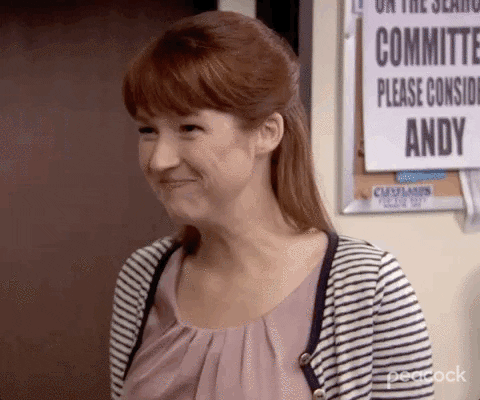
My point: Everything is bananas and we still have to get up every day and somehow make a go of it.
My son’s basketball team won the state championship the same week war erupted in Ukraine. Both events were precedented by long histories full of a mixture of tragedies and triumphs, and yet both seemed unprecedented and impossible in other ways. The photos of the basketball team after their victory reveal a dazzling Texas sunset hanging over their heads. The photos of Ukrainian cities reveal tragic loss and devastation. My feelings about these two situations were sharp-edged and potent.
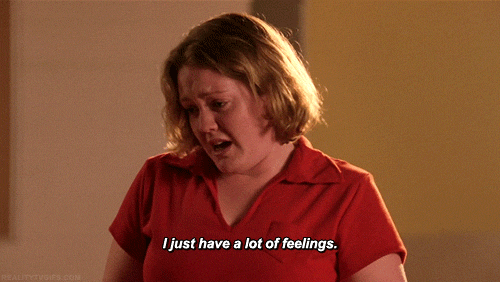
We’ve used the word “unprecedented” a lot in the last two years. At various points in our shared history of pandemic bananas, I’ve heard people say they longed for precedented times again. That seemed so funny to me until it occurred to me that precedented world events involve not only familiar comforts but also horrific injustice. Take war, for example. War is quite precedented, historically speaking.
The question plaguing me is this: How do we carry war, virus pandemics, basketball trophies, and the beauty of ordinary sunsets all at once?
As I considered possible answers to this question, I thought of 1 Corinthians 13:13. It is a familiar, almost saccharine verse. 1 Corinthians 13:13 is the scriptural manifestation of a piece of candy used to keep a child quiet in church.
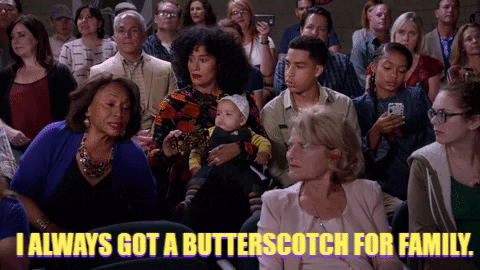
Or at least, Paul’s words seems a little too sweet until we need faith, hope, and love in the deep aching places of our bones. Then these three words, faith, hope, and love emit a holy hush over our desperate souls.
I believe Paul’s wisdom offers us three things to carry us through the highs and lows of life: faith, hope, and love.
Faith is vital, of course. Believing that with God the impossible becomes possible is a necessity in dark and terrifying times. Whether we believe it or not, divine power and aid and rescue are always on their way to us eventually. The difficulty with faith is that our ability to believe is connected to a future we can’t always imagine. My prayer is that God would spark our imaginations so there can be space for our faith to grow into what awaits us tomorrow, next week, and next year.
The path of faith is the only one that can lead us to the territory of hope, where we camp out often in this life. To abide in hope, we must try to savor and appreciate the miracles before God does them. This is tricky and feels foolish when cynicism snaps at us. Hope is strange and Pollyanna-ish, but we never regret fighting to set up our tent on her land.
Paul called love the greatest. While faith and hope require our participation in the action, love is powerful all on its own.
The truth is, love is what complicates my ability to carry the good and bad circumstances in life. The basketball victory is meaningful because I love the kid on the court and long for him to flourish and succeed in all he does. Witnessing war is painful and confusing because I believe I am called to love others as God has loved me, and I feel mostly powerless to enter into the pain of the Ukrainian people in a meaningful way.
Love reveals all that is bananas in life. It tenderizes us and leaves us desperate for a world where things are not as they are, but can be as they are meant to be: full of righteous and holy goodness and peace.
This is how we have always made it through, and how we will make it through all we face today: We will remember God’s love is powerful enough to drive away fear. We will pray in faith for God to rescue the hurting and the lost as he brings peace to the world. And we will hope for opportunities to join God in making that peace happen.
Most of all, we will hold onto the three things that remain once the terror passes and life is no longer impossibly bananas.
February 9, 2022
Love & Restlessness
My husband and I took a long walk the other night. Two days before, our temperatures were below freezing, but the air was slightly warmer on this particular night. I strolled our neighborhood in a pair of slip-on shoes without socks, trying to convince myself that I wasn’t as chilly as I felt.
“I feel restless,” I said, needing to speak the truth that had bubbled up throughout the day.
‘Oh, yeah?” Morgan replied.
I nodded, and then we talked about something else. Because, of course I feel restless. In the last two years, the world has been upturned and pulled apart, then put back together, disassembled, stuck in a bag, flown into a dark cave, and finally dumped in the river.
Society as a whole has become an SNL skit, with everyone hunkered down in a van down by the river. If we don’t laugh about the exhaustion, we will certainly cry. (Realistically, we’ll do both.)
But what can be done about it, really? Change is constant in life with or without a pandemic, and the effort required to keep pace is unnerving.
Take, for example, the fact that my oldest child is now a legal adult. I recognized the eighteen candles on his cake last month indicated I have aged quite a bit since his birth. However, it feels like he should still spend his days pillaging the pantry and pestering me for more video game time.
Oh, wait. Those feelings exist because when his internet shuts off at 11:00 on school nights, he then pesters me for more time to game with his friends before clanging around in the kitchen making pizza at midnight. Selah.
Maybe eighteen-year-old sons are a bad example of how things change.
Let’s talk about our faces instead.
Morgan went to the gym the other day and came home to tell me about a woman he saw there. She was my age, or maybe older. He described her face to me and said he wasn’t sure what had happened to her. I googled “bad facelift,” and he nodded at the images.
‘That’s it,” he said.
It seems some days like modern medicine has given us the following choices about our faces: look old or look like someone who’s old but has spent a lot of money trying not to look old. We all pick the less painful option to carry and then accept what we can’t control.
This is how we’ve become the face of restlessness.
But it’s not just our faces. Our relationships are restless, too.
I’ve had to say goodbye to some friends recently. It’s strange, really, to let people leave your life because they’re moving, because they’re going to a new church, or because they got a new job. After a long conversation with some friends, promising we would stay as close as always even though they’re leaving, I wondered if we would all be able to keep those vows. Then, because I enjoy emotional torture, I wondered who would leave me next. We are restless people who love other restless people.
I’m trying to say that we have deep relational ties to restlessness.
Our awareness of the presence of restlessness is a curious thing. Change makes us feel it, but the tide has already pushed us out into new waters when things actually change. We can’t practice restlessness once everything is already different. But frankly, we don’t want to focus on how our kids are growing up, how our faces are sagging down, and how our friends are drifting away before the truth is unavoidable.
We may be living in a van down by the river, but no one wants to be Debbie Downer. So we let change come. We pretend we were prepared for it. We fake it ’till we make it, and we never learn what restlessness wants to teach us.
The lesson of restlessness is that the ending to every story in our life is love.
Love opens its arms up to enrapture us even when children outgrow us, even when our appearance shifts, even when friends can no longer offer us the love and care they once offered. Love isn’t always flashy and big, and it’s not always spectacular and awe-inspiring.
Love is with you, sitting where you are right now, trying to remember if you already brushed your teeth today. It’s in the wave of an unknown neighbor driving by you in your yard last weekend. Love is there in the most ordinary thing you’ve ever done because it has no home except the one you make for it. Love restlessly flows through every moment of your day.
Even when bad news looms. Even when our faces let us down. Even when injustice seems to be served up in hefty doses. Even when the storm blows in an icy and dangerous new wind. Even when people don’t love us the way we need to be loved, God has loved us to the very end. God is love. Love is where we end this smaller story and begin the next greater one.
The truth is, I did not feel less restless by the end of our walk the other night. But after a few thousand steps onward, my feet felt warmer.
I let the warmth remind me that I’m loved.
Because what else was the walk for, after all?



